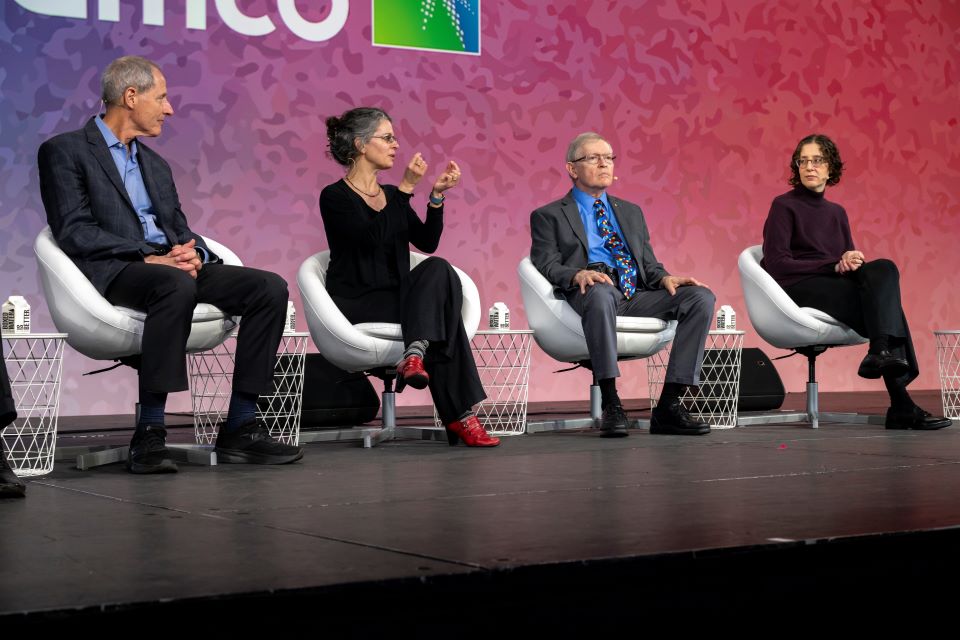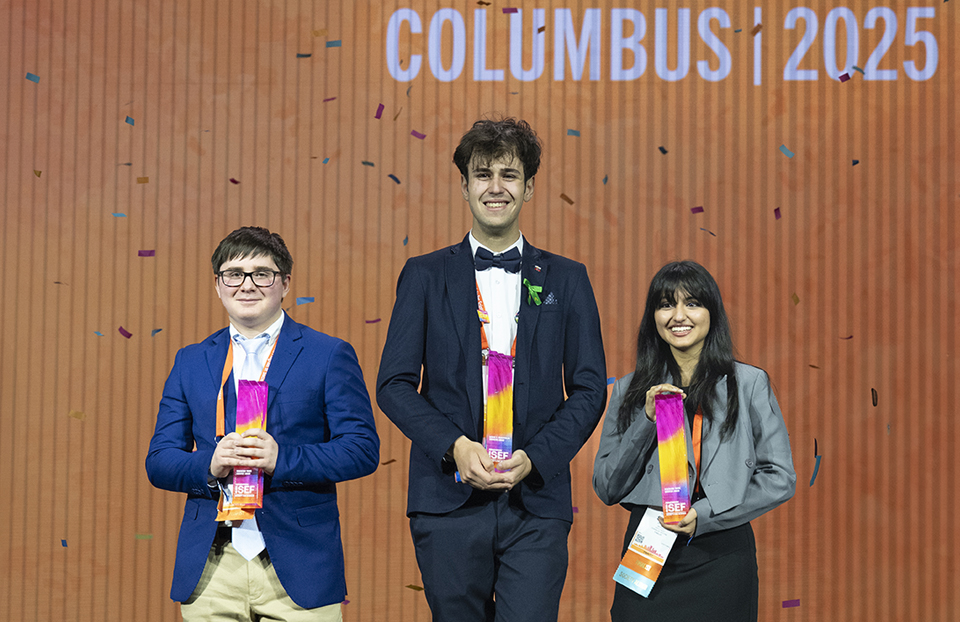Top tips from award-winning scientists at Regeneron ISEF 2024

In mid-May, five leaders in their respective STEM fields came together for the Excellence in Science and Technology Panel at ISEF 2024. Hosted by NPR journalist Joe Palca, the panel comprised Elissa Hallem, a professor of neurobiology at UCLA and 2012 MacArthur Fellow; Dr. Cato Laurencin, an orthopedic surgeon and CEO of the Cato T. Laurencin Institute on Regenerative Engineering; W.E. Moerner, Stanford chemistry professor and 2014 Nobel Laureate in chemistry; Dianne Newman, a California Institute of Technology professor of biology and 2016 MacArthur Fellow; and Thomas Rosenbaum, the President of the California Institute of Technology.
The panel answered finalists’ questions and offered insights on everything from the role of AI in medicine to strategies for discovering new research ideas. Below are some of the best tidbits of advice shared by this incredible group of scientists.
Dianne on doing interdisciplinary research: You should develop depth and expertise in something. That doesn’t mean that you can’t be conversant in different fields, but in my experience, it’s difficult to have depth in much more than a couple of things. Pick the thing that really speaks to you and try to be the best you can at that. Try to be aware of other fields that can creatively help drive what you care about forward but collaborate with other experts. Don’t try to be a jack of all trades and a master of none.
Thomas on how best to take advantage of a STEM education: As you go ahead with your education, there’s a certain trend now to think that you should master a vocational skill. I think it’s more important to follow your curiosity to general skills in terms of problem solving. And then, because the world is changing so quickly, if you get that sort of confidence and that sort of experience, you can apply those skills to whatever problem arises.
Elissa on if an elite university is necessary: I think that it matters a lot less where you go than what you do when you get there. There’s just a big focus right now on where you go to college and there’s a lot of stress associated with it, but there are extremely successful people who have taken so many different career paths, whether they took some time off and then went to college. Wherever you go, there will be opportunities. The key is to try to learn from the people around you as much as you can and seek out opportunities for yourself.
Cato on seeking out research opportunities as an undergraduate: I have about 50 students between postdocs, grad students and undergrads. The majority of students get in the door by contacting me or one of the other scientists in the institute to come in. When we’re contacted, we expect that, number one, someone’s read a paper that I or someone else in the lab has written that they really liked, and that they’ve read a review paper, so they know what’s going on. But it’s expected that you’ll knock on doors, just be sure to show your interest and professors will reward that.
W.E. Moerner on whether he would change his path: I did not start out thinking that I would get a Nobel Prize, and I want to urge you not to have that kind of a path in mind either. You want to do what’s right in front of you and enjoy it and learn from it, and then go to the next. You can learn so much more that way. But in my case, the whole story of my life is just a sequence of coincidences. And I wouldn’t really want to change any of it, but of course, if I did it again, it all would be different.
If you want to revisit the excitement of Regeneron ISEF, check out the highlights reel here.


